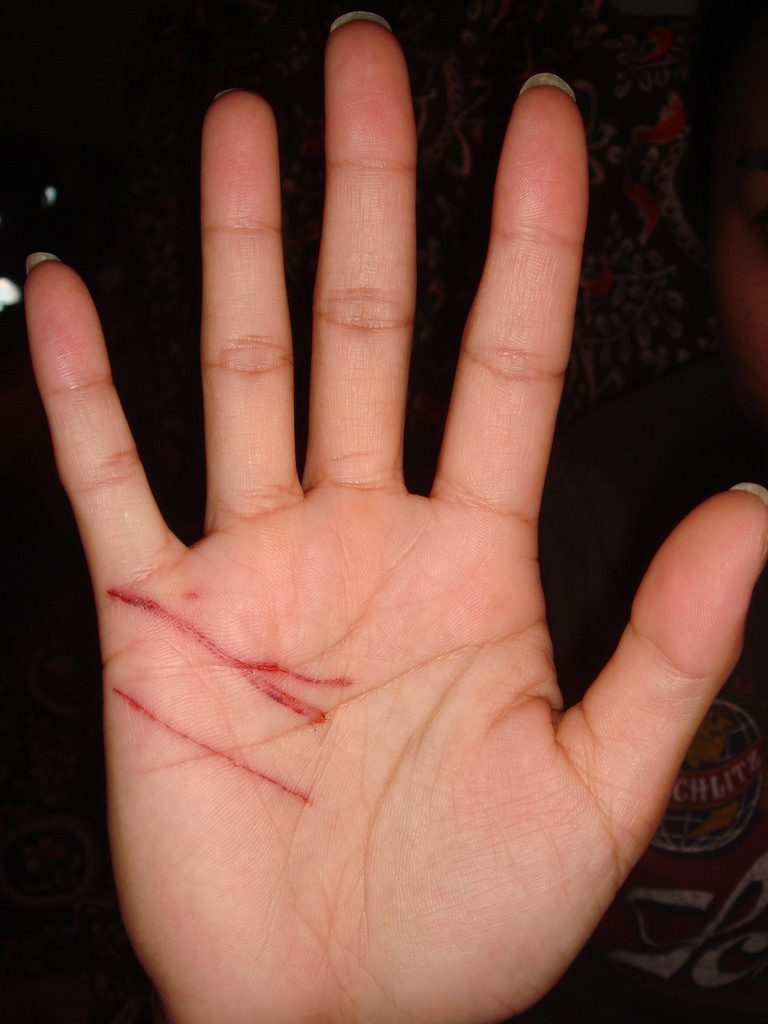Probably one of the terrifying realizations that parents have to find out about their teens is when they are intentionally hurting themselves through cutting.

Sadly, cutting in teens is common these days; experts are calling it self-injury. Scratching or cutting the skin using anything that could make the surface bleed, such as razors or cutters, are some of the ways self-injury occurs. Other more severe means of self-injury are hitting or burning.
Why Parents’ Reaction Matters
Discovering that your teens or children are cutting can leave parents extremely worried, scared, and even enraged. Though these emotions are natural reactions, the most important thing that parents have to avoid is to be judgmental of their child. Instead of being judgmental, try to be more understanding and know the reason behind the act. But first, parents have to calm themselves down if they want to have a meaningful and relaxing conversation with their children.
“Prevention, intervention and treatment require families, peers, and systems to work collectively to put programs and practices in place that bolster the community’s ability to identify and screen higher risk youth but also to prevent and intervene when warning signs are noticed in any students.” says Janis Whitlock, MPH, Ph.D., and Elizabeth Lloyd-Richardson, Ph.D.
When conversing with your teen about the reasons why he or she did it, the first thing that you have to consider is that your child is going through pain and suffering, internally and externally. So you asking your teens a lot of questions and making them stop the act without listening to the reasons behind it can make your children feel ashamed and can only worsen the situation. Assure your teens that you’re there to listen, understand, and help because admittedly, there were instances when they wanted to stop cutting, but they didn’t know-how.
The Reason For Self-Injury
Teens that cut or intentionally hurt themselves have a number of reasons why they do it. But usually, the primary intentions for self-injury are:
- To provide a distraction from the severe emotional pain experienced.
- To feel something, because teens feel nothing or are dead inside.
- To non-verbally communicate their unhappiness to stressful
Cutting is such a perplexing behavior for it can serve a lot of different purposes for one teen at different times. Whatever your teens’ reasons are for self-injury, it develops a destructive way of coping and managing problems in life.
Erin Leonard Ph.D. explained that “the activities that, in the past, allowed children and adolescents the opportunities to reduce their anxiety have diminished from their current routines. Top it off with the developmental difficulties of adolescence, and the perfect storm begins to brew.”
No matter how disturbing or troubling the idea is to parents, cutting provides some sort of temporary diversion or relief from the problems their kids are facing. However, the act does not solve their issues and instead increases the risk for further medical problems.
Cutting Is Like A Drug
Cutting is addictive. The more your teens realize that self-injury is a solution to their grievances, the more they’ll do the deed. Repetition happens due to the temporary relieving effect teens feel whenever they cut, which they want to feel again whenever they encounter complications in their lives. Self-injury then becomes an addiction. Therefore, immediate treatment is required.

Common Reasons For Self-Injury
Self-injury can be a product of culminating internal or external problems. Still, the scenario and reasons behind cutting can be due to several things, such as:
- Mental illnesses like anxiety, depression, or bipolar disorder
- Very low self-confidence and self-esteem
- Physical or sexual abuse
- Feeling alone and rejected
- Perfectionism usually coming from parents
- Recurrent conflicts with family and friends
- Impulsive tendencies or being risk-takers
- ADHD

Seeking Professional Help
Once parents have evaluated their teens by calmly talking to them and finding out the explanation of why they did such a horrible act, parents must suggest treatment options. There are tons of ways to help your teens that can be provided by a therapist; often, these treatments would involve psychotherapy, family therapy, and medications.
Breaking the chain of cutting is difficult and challenging for your teens, which is why as parents it would help their condition if you show empathy to what they are going through, along with acceptance and unconditional love.
“Many who self-injure are reluctant to give up doing so, because it is such a powerful way to relieve negative emotion. For them, it is a primary tool for dealing with stress and upsetting situations, and they feel like they will be helpless without it.” Edward A. Selby Ph.D. emphasized.
It would be best to turn to BetterHelp to ease your burdens away. They have experts who can help you deal with your troubles.
